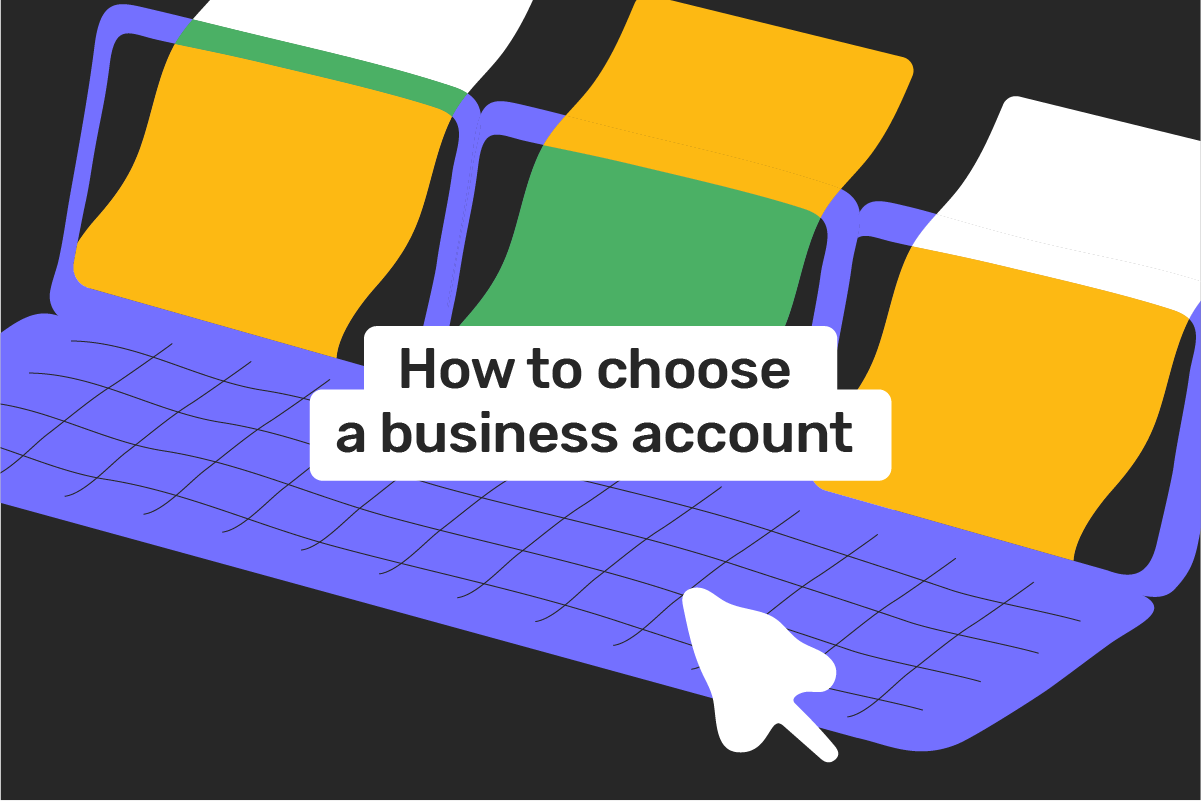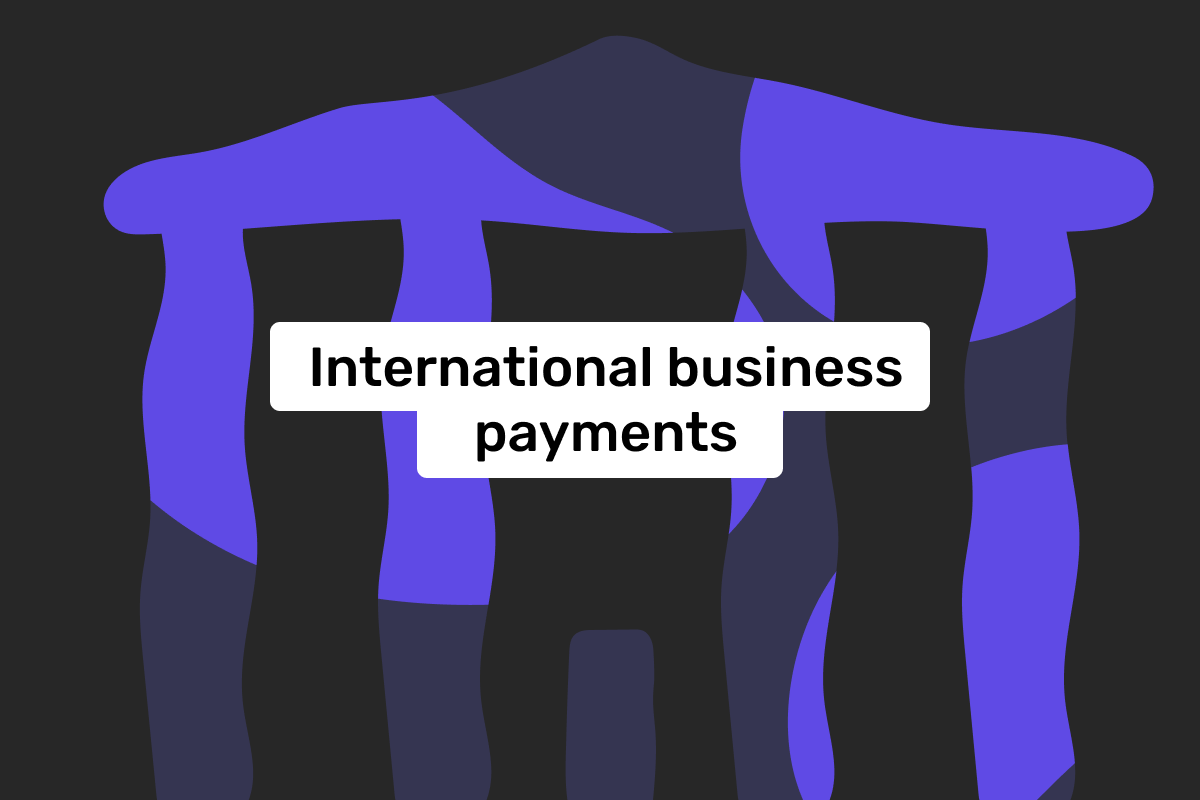Genome Blog / articles / Choose a business account before starting a business
Aug. 10, 2022
Starting a business is exciting but tricky as well. There are so many things you have to think about! In this article, we will focus on two of them: strategy and finance. We will advise how to plan your business goals and reach the audience. And after that, we at Genome will talk about business bank accounts, their functions and benefits, and guide you on how to choose one.
Creating a company: useful tips for beginners
Surely you would have to take care of the financial establishment of your business. But first, consider some prior things, such as goals and audience. We have gathered here some useful tips for business beginners. For those, who already have a nice setup, we recommend quickly reading through them, as you never know where a good idea will come from.
Set the goals
What defines a forward-looking company? A company can become successful if it meets the following four criteria: vision, purpose, audacity, and amelioration.
- Vision. A company should respond to a set of permanent needs by setting a course of clear long-term objectives. Companies capable of embodying a vision are likely to last way longer. Vision goes hand in hand with the notion of identity. It is essential because it allows your business to be recognizable. Yet the notion of identity may seem abstract. These questions should help you to figure out yours: if your brand was a person, how would you define the temperament in five words; what words would a person especially not utter; what issue does a person want to tackle; and what needs will this person meet.
- Purpose. Affirm and embody the purpose. The purpose is a commitment you make. For instance, a fight against waste, respect for the balance between private and professional life, or short-circuit supply and fresh produce: the more precise the choice is, the more visible the impact will be.
- Audacity. Ambitious goals are achievable when they are broken down into milestones. With each step you take, you set a milestone. Your customers can see where you have come from and where you are going. So constantly inform your customers along with your employees about the path you are taking and the goals you are achieving.
- Amelioration. Dare to start and accept failure. Learn from mistakes, and adapt. These attitudes allow a company to last long. Identify practices that you have set, and integrate new working tools into your practices.
Know your market
Market research aims to define your place on the chessboard of the business sector, along with your place in it.
Be close to the target audience. It is the key point here. Who are your clients, and what are their ages, interests, occupation, and surroundings? What are their needs, and how do you connect to them? How do you take into account their opinion on your product or service? How do you involve them in the development of your business? Answer these questions to have a clear picture of the target audience.
Choose the presence. To run a business successfully, choose your platform of presence wisely. For instance, if you are building an airline business, you might want a mobile application along with the website. If you are about to launch a music streaming platform, consider investing in mobile and desktop application development. But if your business, for example, is selling coffee to restaurants, a well-composed website would be enough.
What is a business bank account, and why do you need it?
Now that we have discussed setting up the business from the strategic point of view let’s move to the financial part of the process. Any business needs a business account. That seems logically quite obvious, but why is it so?
A business bank account is an account that offers financial services to companies of different levels. Like a personal bank account, a business account provides standard financial services like sending and receiving transfers, making payments, issuing physical and virtual payment cards, issuing digital wallets, online banking, saving money, etc. But on top of that, there is a set of services that support a business, no matter if we are talking about freelancers or companies.
Financial services of a business account
- Business transfers and payments;
- Shared account access and roles assignments;
- Account statements and analytics;
- A possibility to to get a merchant account;
Business accounts are great for better finance management. For example, imagine that there is a little shop in Norway that sells organic textiles. If an owner did not have a business account, she would have to process all the income within a personal account, along with salaries for colleagues and taxes.
Having a business account for this shop would mean a clear fund separation. An income would be easy to spot, spending would be simple to mark, taxes would be less complicated to pay, plus some of the colleagues would have access to the account to manage shop errands.
But just like for a company, a business account is equally useful for a freelancer. For example, if there is a sustainable clothes designer from one of the EU countries like Finland, he would benefit from the financial separation between personal and business spaces. All the incomes would arrive on the business side, along with job expenses on materials or equipment. Also, the separation is beneficial for the taxes purpose. And at last, having a business account means taking your freshly new company seriously and showing it to your clients.
How to choose a business account?
To choose a business account, you must start with your goals and needs to sustain them. But sure thing, there are some basic recommendations.
- Fast and sustainable onboarding. There are still some banks that take five business days to issue you an account, along with lengthy printed pages of the contract. Not good. The future is here, so do not treat yourself that way. Choose banks that offer fast, easy, and paper-free onboarding.
- Multi-currency. Suppose you are planning to set up your business in Europe or the United Kingdom and potentially grow. In that case, we recommend looking for a provider that offers multiple currencies within one business account.
- Shared accounts. This option is great for businesses. By sharing an account, you can assign special roles and levels of access to colleagues. For example, the accounting department can view income for making tax reports. The product department can spend some amount of funds to order materials. And the HR department can have their finances for event organizing.
- Business analytics. Business analytics is a must to keep a better track of a company’s money. It is especially relevant for businesses that make money right away. Choose a business account that gives you this opportunity.
- Security. Fraud prevention services are a must for online banking. Never underestimate them, as they can save your business’s life. Another thing to watch out for is regulation and compliance. If an account provider does not comply with the most important international law and regulation, do not entrust them with your money.
- Pleasant customer service. Not the last thing on this list, even literally. Customer service usually stays invisible until you need it, and that time will come. Search for the provider that is ready for a friendly and helpful dialogue.
- One fluent ecosystem. At last, if you plan to grow your business and accept card payments, you would need a merchant account. There are account providers that issue personal, business, and merchant accounts all in one fluent ecosystem. We definitely recommend that.
The next level of the business account: accept card payments online
When you already have a personal bank account and a business one, you are ready to grow to a merchant account. A merchant account is the only account that allows you to accept card payments, both in retail and online.
Unlike personal and business accounts, a merchant account does not allow you to use banking services like payments, card issuing, savings, and so on. It has only two operations: it can receive electronic payments of the business, and that money can then be transferred to a business account of the very same company.
Having a merchant account is one of the most natural businesses growing today, as more and more clients wish to pay by card. For online goods and services, it is basically a must. Surely, there are other ways of delivering a payment to online sellers, but today card payments are the most reliable and secure way.
Genome: start your business with an online account
Genome is an online account provider. It allows clients to benefit from the seamless ecosystem of personal, business, and merchant accounts* altogether. Genome also offers accounts in three currencies – EUR, GBP, and USD, allowing currency exchange within an online wallet. To open an account in Genome, please follow the link.
*Please note that Genome’s merchant services have been temporarily unavailable since September 2024.
FAQ
Do you make a business plan before opening a business?
Absolutely. Before starting a business, you should clearly understand and write down your goals, needs, audience, and product description. Only after that can you continue with paperwork and finance.
What should you do before starting your own business?
First of all, understand why and how you want to do it. Create a business strategy and a business plan for one year and five years. Knowing the company’s vision, goals, objectives, audience, and purpose is essential. By composing the file, you will arrive at a more precise comprehension of what you are about to do.
Which account should be opened to run a business?
Definitely a business account, It will allow a company owner to separate personal and business funds, create tax reports easily, share access to the account, and view analytics. Another step is a merchant account, which allows a company to accept electronic payments in retail and online stores.
What are the 3 things need to be considered before starting the business?
The first one is the business strategy. It will allow you to organize all the business goals, visions, future perspectives, and so on in one document. The second one is the registration moment and required licenses and documentation. And the third one is the financial part, how to choose a business account for the company.





